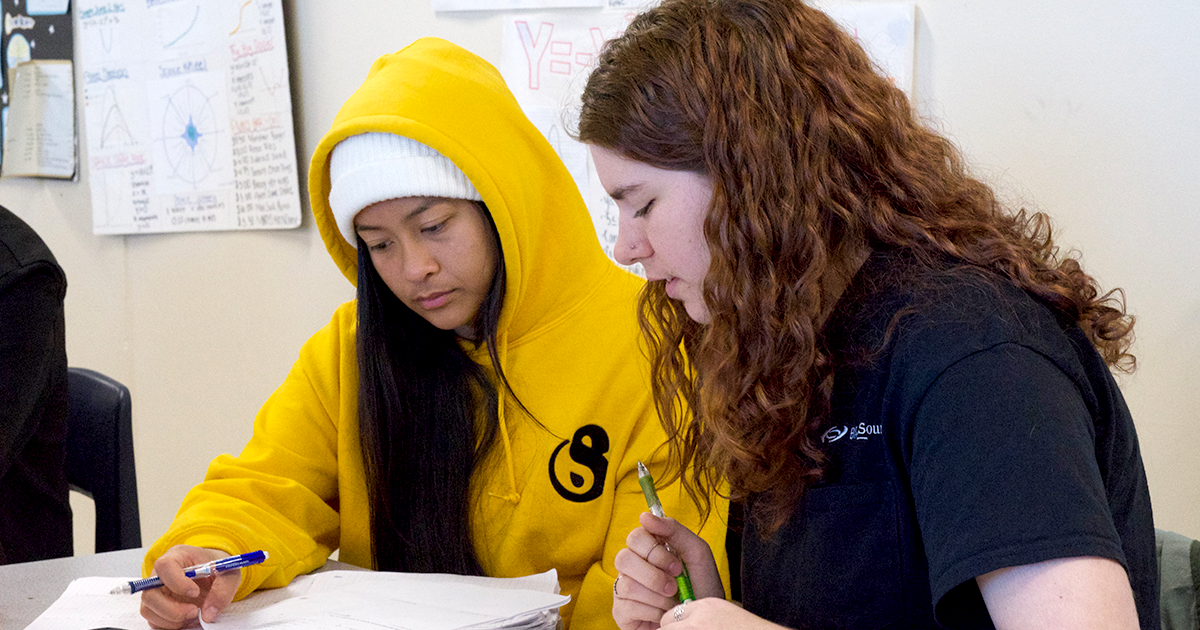Amplifying Student Agency Through Formative Assessment
Posted on

By Cali Kaminsky, Senior Program Associate with WestEd’s Formative Insights: Assessment for Learning team
WestEd’s new Formative Insights: Assessment for Learning microsite provides new resources to support educators—from classroom teachers to state-level leaders—in learning about Formative Insights’ unique, systems-based model to implementing and scaling formative assessment processes.
Nearly 20 years of research confirms that formative assessment contributes to key outcomes for students, including increased collaborative learning with peers, improved positive learner identities, and greater student agency.
To enliven formative assessment practice, Formative Insights focuses educators on cultivating inclusive learning environments in which students develop positive learner identities and feel equipped and empowered to direct their own learning.
In this blog post, we introduce the key features and resources available on the site to support teachers as they learn to apply formative assessment, teacher leaders as they implement formative assessment at their school sites, and leaders as they seek to provide the professional learning systems necessary to bring formative assessment to scale.
View Student, Teacher, and Leader Perspectives
In a new video collection, you can hear directly from students, practitioners, and leaders who share what they are learning about implementing and scaling formative assessment and how they are learning it. Sunnyside Unified School District Chief Academic Officer Pam Betten explains how formative assessment helps to identify and close learning gaps across her district. Third-grade teacher Nanette Longchamp shares how she views formative assessment as the conduit to moving student learning forward.
From kindergarten students to district leaders, these voices bring to life changes in teacher and student roles as WestEd collaborates with schools and districts to empower students, nurture collaborative classrooms, build positive learner identities, and develop leadership to build systems that sustain deep learning.
Access the complete video collection.
Read Case Stories
A new series of case studies describe the innovative ways in which the Formative Insights team collaborates with schools, districts, state agencies, and other organizations to address persistent challenges through:
- Creating a coherent districtwide vision for student agency
- Advancing teacher leadership to deepen adult learning culture
- Developing statewide capacity to lead formative assessment
Read the full selection of stories.
Access Learning Resources
Explore resources from teachers, students, leaders, and WestEd’s Formative Insights team on deepening student agency, building leadership capacity, and understanding the daily process of inquiry that teachers and students participate in together to better understand the status of learning in the moment and how to move learning forward.
These resources highlight key ideas and practices related to the formative assessment process. They also showcase the perspectives of educators and students who have experienced the transformative impact of formative assessment in their classrooms. Educators can use these resources to deepen learning and gain insights to support their work in formative assessment.
How WestEd Can Support Your Formative Assessment Initiatives
The Formative Insights team leads transformative professional learning experiences in formative assessment with thousands of educators across the nation. The new microsite includes a page dedicated to sharing the variety of professional learning and technical assistance services available from the Formative Insights team.
We provide tailored services for your school, district, or state system, in four areas:
- Scaling teaching and learning
- Developing teacher leaders and coaches
- Building leadership capacity
- Supporting statewide scaling
Learn more about flexible partnership options.
 Cali Kaminsky joined WestEd’s Assessment for Learning team in March 2021, bringing expertise in college and career readiness and secondary systems design, as well as formative assessment, secondary reform, and competency-based systems. She leads research on structures that influence change in student roles and coordinates state and district technical assistance and professional learning to support large-scale projects that increase teacher and leader agency.
Cali Kaminsky joined WestEd’s Assessment for Learning team in March 2021, bringing expertise in college and career readiness and secondary systems design, as well as formative assessment, secondary reform, and competency-based systems. She leads research on structures that influence change in student roles and coordinates state and district technical assistance and professional learning to support large-scale projects that increase teacher and leader agency.
